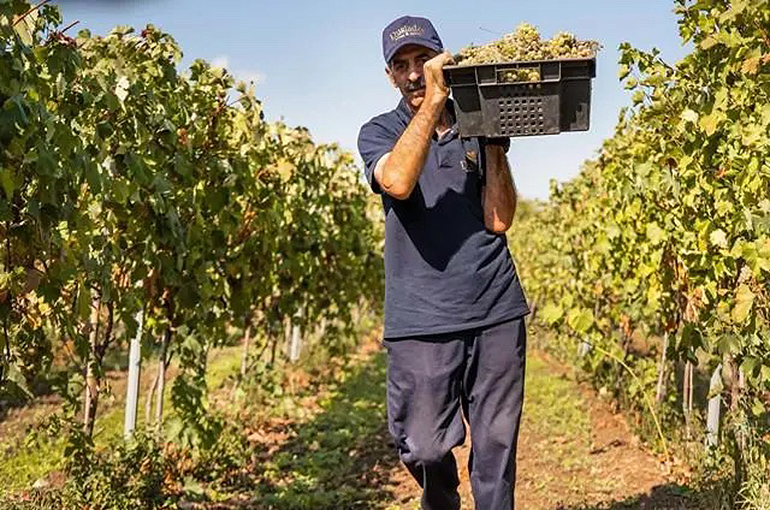 China Imports More and More Agricultural Products From BRI Countries
China Imports More and More Agricultural Products From BRI Countries(Yicai) Oct. 17 -- China has been importing more and more agricultural products from countries along the Belt and Road Initiative, including Georgian wine and Kazakhstani flour and rapeseed oil.
"After the China-Georgia Free Trade Agreement came into effect in 2018, Georgian wines entering China have more competitive prices than those from Western countries," Zhou Yuan, chief executive officer of the Chinese business of Georgian wine brand La Nina Dwarf, told Yicai. "We sold more than one million bottles in China last year," Zhou noted.
The BRI greatly helps countries affected in trade, Zhou said. "The initiative interconnects the logistics systems in these countries, attracts overseas investment, and improves infrastructure and employment in these countries," he added.
"We are considering building logistics and warehousing centers in Chinese cities to raise our market shares in China and other countries along the BRI," Alexander Tushuri, CEO of Georgia's largest winery Dugladze, told Yicai.
A Kazakhstani wheat farmer explained to Yicai how his life has changed since he started cooperating with Chinese partners that process Kazakhstani wheat in the country and then export it to China.
"The seeded area of my farm have jumped from over 500 hectares to 20,000 hectares, and transport and sales of agricultural products have been guaranteed since I began to work with Chinese partners," the farmer noted. "I intend to plant more oil-bearing crops such as rapeseed in the future because their price are quite competitive."
Chinese firm Xi'an Aiju Grain and Oil Industrial Group, which built a rapeseed processing plant in Kazakhstan, is a perfect example of the China-Kazakhstan industrial chain cooperation, He Zhenwei, head of the China Overseas Development Association, and who has been paying close attention to the partnership between China and Central Asia for years, told Yicai.
"Aiju produces rapeseed oil in Kazakhstan using rich rapeseed resources in the Central Asian country and then exports oil to China via the China-Europe Railway Express," He noted.
The China-Kazakhstan partnership is a win-win cooperation because it increases employment in Kazakhstan while making full use of China's ability to process agricultural products, He pointed out.
Wind power, solar energy, and energy storage are possible future directions for the cooperation between China and the five Central Asian countries -- Kazakhstan, Kyrgyzstan, Tajikistan, Turkmenistan, and Uzbekistan -- He believes.
Uzbekistan has more than 300 sunny days a year, so it is a perfect place to develop the photovoltaic industry, He noted, adding that China's rich experience in clean energy is worth promoting in Central Asia.
Trade between China and the five Central Asian countries climbed to a record high of USD70.2 billion last year from USD460 million in 1992 when they opened diplomatic relations, statistics from China's Ministry of Commerce showed in January.
China's imports of agricultural products, energy products, and minerals from Central Asia soared over 50 percent last year from the previous one, according to MOFCOM data. China's exports of mechanical and electrical products to the five countries rose 42 percent in the period.
China's direct investment in Central Asia totaled nearly USD15 billion as of the end of last year, according to the commerce ministry.
Editors: Tang Shihua, Futura Costaglione